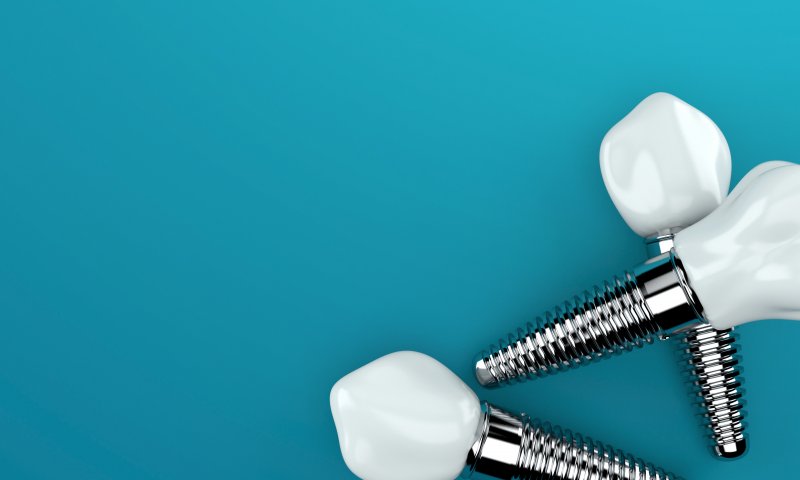
Dental implants are one of the most popular and effective restoration treatments out there. Not only can they replace any number of missing teeth, but they can help preserve your jawbone while preventing further tooth loss for a lifetime! However, since you’ll want to make the most of them, you might be wondering if they can get stained like natural pearly whites. Read on to learn how dental implants can become discolored and several ways you can avoid this in the long run.
Do Dental Implants Get Stained?
Unlike your permanent teeth, dental implants will be made out of titanium posts and porcelain materials. This means they won’t decay and will be highly resistant to stains. However, they will only be resilient to discoloration as long as you maintain the glaze covering their surface. If you use abrasive ingredients or acid fluoride treatments to keep them clean, then this can wear down the coating and make them more susceptible to staining. To prevent damaging your dental implants, it’s important to regularly use soft-bristled toothbrushes and gentle toothpaste.
4 Ways to Avoid Discoloration in Dental Implants
Although your restorations will have a resistance to stains, it’s best to brush and floss them daily to further minimize your chances. Here are several ways you can prevent dental implant discoloration:
- Avoid meals and drinks containing tannins: There are certain foods like coffee, berries, tea, and red wine that consist of tannins. This substance, combined with chromogens and acid, can corrode your teeth and implants, resulting in dark stains that only your dentist can remove.
- Keep away from using abrasive toothpaste: Although these products might brighten your natural smile, they can also gradually wear down your enamel. This is the same with the glaze on your dental implants. With a rougher surface, they’ll only be more vulnerable to discoloration later on.
- Stay clear of tobacco use: These products contain tar and nicotine, which can darken your teeth with a brown or yellowish appearance. Chewing or smoking tobacco not only discolors your dental implants, but it can cause your restorations to fail by affecting your connective tissues.
- Brush and rinse after every meal: Certain foods can leave acids or chemicals on your teeth, which may erode your dental implants. By brushing at least an hour after eating your meal, you can reduce the chance of damaging the surface glaze. Doing so immediately after eating can instead spread the chemicals over your smile and cause more harm to sensitive teeth.
By practicing these few methods, you can maintain healthy and clean dental implants for many years to come. And if you ever need the extra cleaning power, be sure to visit your dentist for professional polishing!
About the Author
Dr. H. Douglas Clark is a proud affiliate of several groups like the Northeastern District Dental Society, the American Academy of Cosmetic Dentistry, and the Academy of General Dentistry. He studied at the Marquette University School of Dentistry and regularly seeks continuing education to refine his expertise. He offers a wide collection of advanced treatments, including checkups/cleanings and dental implants to preserve your dental health. If you’d like to schedule an appointment, visit his website or call 715-392-5161.









